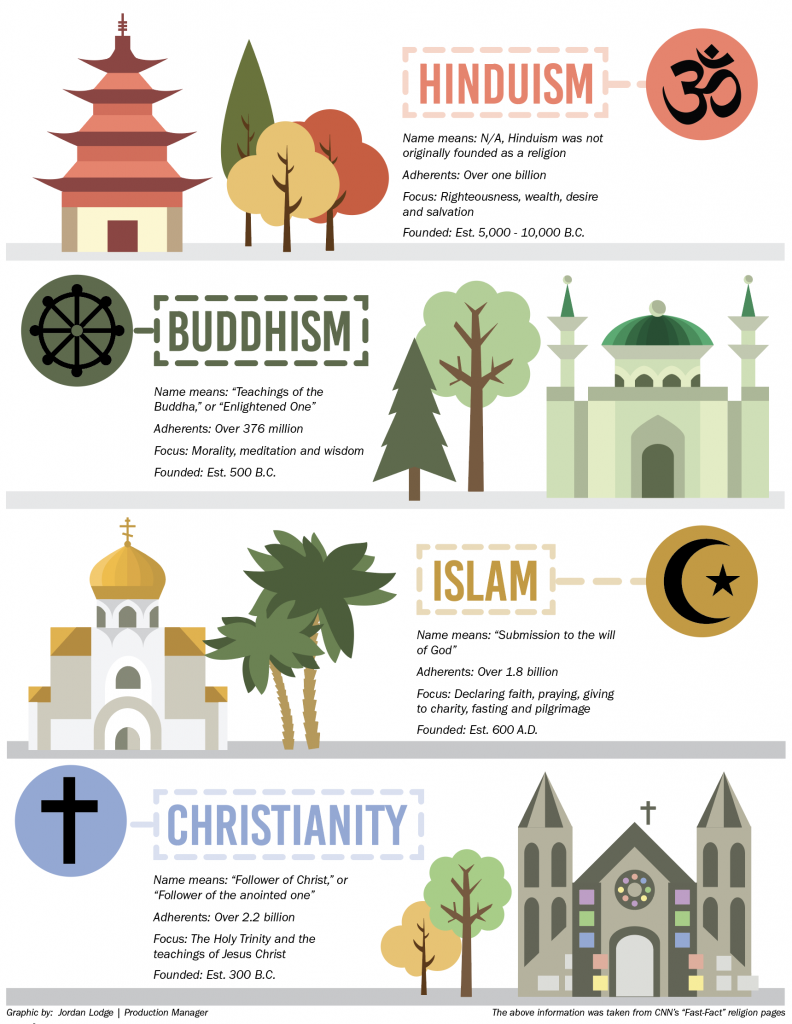
Ferris has a diverse student body from different backgrounds, which means that a variety of religions exist throughout campus.
The upcoming fall months bring many religious holidays from many different faiths, such as Islam, Hinduism and Judaism. These holidays bring students together to celebrate what unites their religion all across the world.
According to Ferris Assistant Director of the Office of International Education Lisa vonReichbauer, the main religions practiced on campus are Christianity, Islam, Hinduism and Buddhism.
In Islam, a main holiday celebrated in September is Al-Hijra, the Islamic New Year, which took place Sept. 21 and Sept. 22. Celebration of this holiday is shared across campus, as Islam is one of the most popular religions amongst international students, according to vonReichbauer.
“We have a fairly large Muslim population of students,” vonReichbauer said. “And they also have worked through their Muslim student organization in the last few years and they have purchased a mosque and so they have a mosque in the downtown area of Big Rapids right now because the population has increased quite a bit.”
The end of September also brings Jewish holidays such as Rosh Hashanah, which is the Jewish New Year, on Sept. 21 and Sept. 22 and Yom Kippur, during which people fast, refrain from work and pray for the forgiveness of their sins on Sept. 30. However, Ferris has a smaller Jewish population than other religions on campus.
“Our Jewish population from the student perspective is quite small on campus,” vonReichbauer said. “That can be for various reasons but we don’t have a synagogue in Big Rapids, so students would have to drive at least an hour to get to a synagogue in Grand Rapids or Mount Pleasant.”
Many other religions are prevalent at Ferris as well. Ferris international liberal arts junior Mariko Hasegawa, an exchange student from Japan, practices both Shintoism and Buddhism.
“In Japan, there are few people who do something to god,” Hasegawa said. “They just believe god. We don’t have [one] particular god; we believe everything in nature should be respected. Everything has its own spirit.”
Because of the wide variety of religions on campus, students should make an effort to learn about the other faiths, according to Ferris religions professor Dr. J. Randall Groves.
“It’s one of the key things for understanding the culture,” Groves said. “You’re not going to understand without understanding the religion. Yes, you have to study their history and their economy and all of that sort of stuff but every single time, you’ll find that their religion is a big part of the story. There’s no way around it.”
